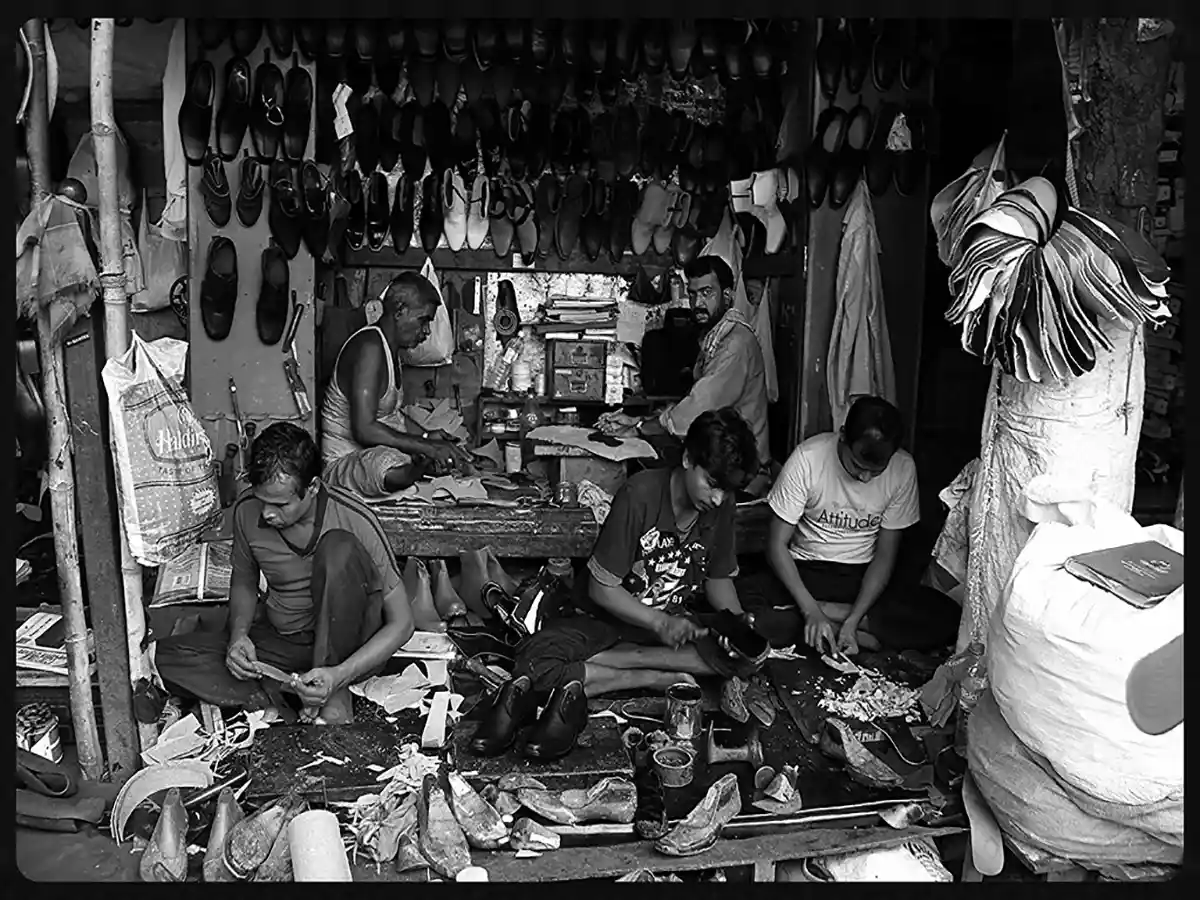The Cobbler Scam-One of the Biggest Scams of Mumbai
Corruption is common in India but it is only a few of the bigger scams that make it into the news headlines. The Cobbler Scam of 1995 was one such case that moved the nation. It involved not only businessmen and financial institutions but also raised suspicion around several well-known politicians.

A group of cobblers at work; Image Source: Flickr
Mumbai is the financial capital of India and a major hub for manufacturing. Unfortunately, in the year 1995, the city made it to the news for one of the biggest scams of all time amounting to $600 million. And yes, the scam was linked to the manufacturing sector, viz. shoe manufacture in what came to be known asthe Cobbler Scam.
The scam brought to light several loopholes in the government system and needless to say, exposed many business tycoons and known political faces in the state of Maharastra. The Cobbler Scam was constantly in the headlines for the next couple of years to come. A thorough investigation on the part of the police kept on adding new elements to the case. And the nation was closely watching it get unravelled day by day. After all, it was the money of the taxpayers that was being siphoned off, depriving the poor labouring class of its benefits!
It all started with a simple complaint from the Brihanmumbai Municipal Corporation, popularly known as the BMC, regarding the unusual movement of raw materials into Mumbai, and that too in heavy quantities. But what especially caught the attention of the BMC officials was that all these goods fell under the purview of octroi i.e. had concessions associated with them. These were supposed to belong to a number of cooperative societies of cobblers across Mumbai.
A survey to ascertain the identity of those cobblers’ cooperative societies was therefore conducted by the Registrar of Cooperative Societies and as it would ultimately point out later, all the societies liable for the above-mentioned raw materials were fictitious and non-existent. It was not until Sudhir Thakre, the joint registrar of the Cooperative Society for Mumbai, had conducted a complete survey of the area, that the names started to pop up ultimately.
Sohin and Sadruddin Daya of Dawood Shoes, Rafique Tejani of Metro Shoes and Kishore Signapurkar of Milano Shoes, and Abu Asim Azmi of Citywalk Shoes and also the then president of Samajwadi Party, in Mumbai, were the prime accused. A total of fifteen people were arrested initially. However, the list ended up being of 28 people in total as the final chargesheet of almost 80-90 pages was submitted by the police in September 1996. As stated by DCP Sanjay Pandey, a total of nineteen raids and investigation of as many as fifty-one cooperative societies yielded this list which included politicians too- from four major parties including the Congress, the Samajwadi Party, the BJP, and the Shiv Shena.
The government scheme under the Small Industries Development Bank of India (SIDBI) and Khadi and Villages Industries Commission (KVIC) which was introduced to reduce the burden on the small artisans was being misused here. Under this scheme, soft loans with low interests rate were granted to cooperative societies for production. The businessmen manipulated this in their favour and fabricated a list of bogus cooperative societies to siphon off this easy money. In collusion with several financial institutions, it became an easy way to deceive the government.
Eventually, the case lost the media attention by 2009 and it has fallen under the weight of our delayed judicial system. Surprisingly, as luck would have it, it has stayed without trial for more than two decades now, only popping into the news once in 2018 as the court rejected the discharge plea of the accused Sadruddin Daya.


